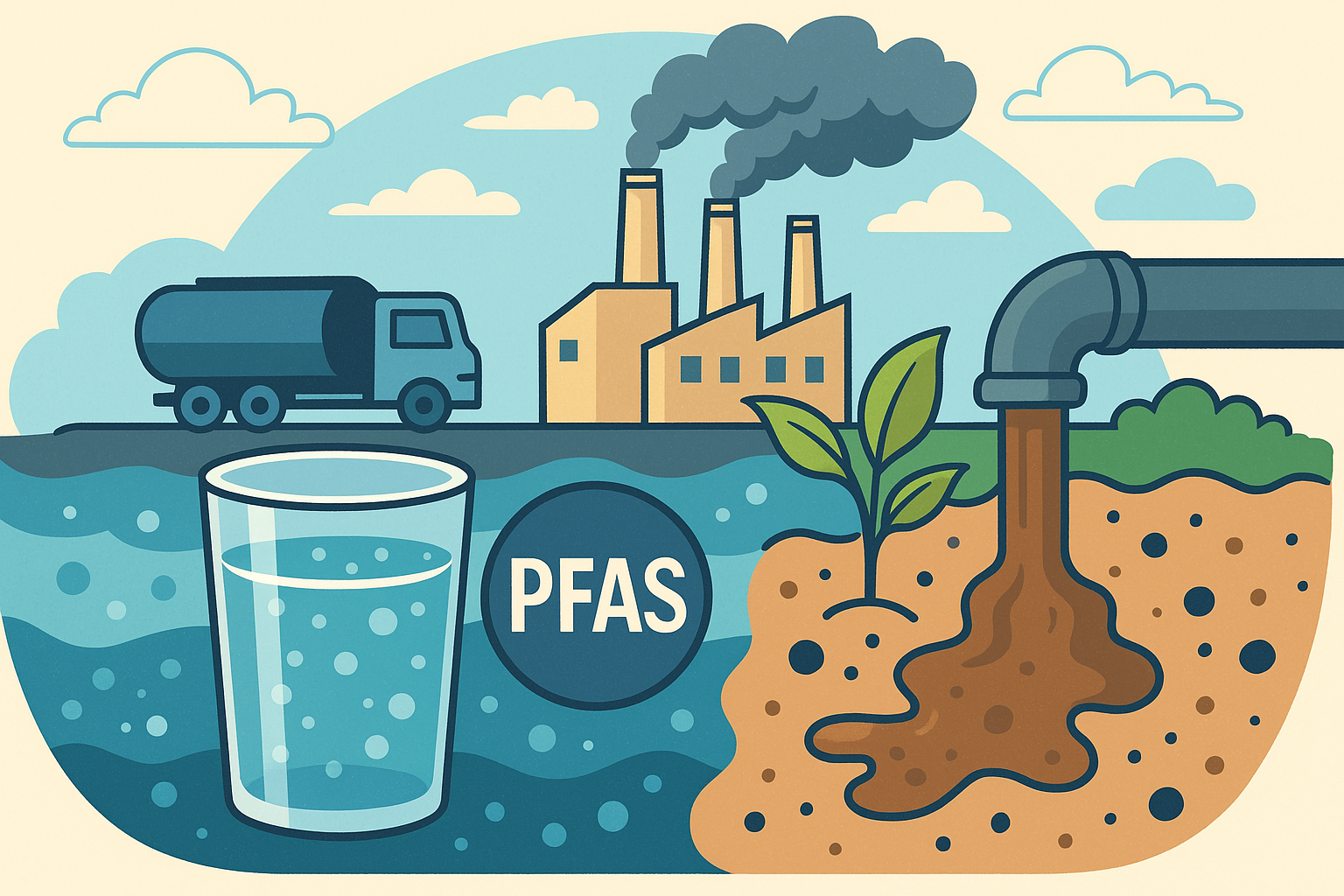By CASC4DE April 5, 2025

🌍 PFAS Pollution: A Growing Concern
Per- and polyfluoroalkyl substances (PFAS), also known as forever chemicals, are found everywhere—in water, air, soil, and even within living organisms. Their persistence in the environment and potential health risks make them a major focus of scientific and regulatory discussions.
To address these concerns, the French Academy of Sciences has released a comprehensive report entitled: “La pollution aux PFAS : état des lieux des connaissances et enjeux de société”. This report provides a rigorous scientific analysis of PFAS, detailing their presence, impact, and the challenges linked to their management.
🔬 A Scientific Review Conducted by Experts
The study was conducted by a group of renowned experts, led by Bruno Chaudret, with contributions from specialists such as Olivier Donard (analytical chemistry and environmental sciences) and Odile Eisenstein (theoretical chemistry). Additionally, the report was enriched by hearings from leading experts, including: Rémy Slama, Sergey Nikitenko, Tony Chave, Robert Barouki, Frédéric Leroux, Pierre Labadie & Hélène Budzinsky
Their findings highlight the unprecedented complexity of PFAS pollution and the urgent need for a coordinated effort to enhance detection methods and establish reliable regulatory standards.
📌 Key Challenges and Recommendations
🔍 1. Improving PFAS Detection & Measurement
The detection and quantification of PFAS remain a major challenge due to their chemical diversity (over 10,000 different compounds). The report emphasizes the need for better analytical techniques, advocating for a double strategy:
- Total Fluorine Measurement for a broad detection of contamination levels.
- Advanced Chromatography & Spectrometry to identify specific PFAS molecules.
🏥 2. Understanding Health & Environmental Risks
Despite progress in research, much remains unknown about the long-term health impacts of PFAS. Studies suggest links to cancers, immune dysfunction, and metabolic disorders. The report urges for expanded toxicological research to assess the risks more accurately.
⚖️ 3. Strengthening Regulation and Prevention
The Academy calls for:
- A complete ban on PFAS emissions into the environment.
- Stricter policies treating PFAS as a single chemical class, due to their collective persistence and risks.
- Better traceability and public transparency regarding PFAS usage and contamination.
🔬 4. Developing Safe Substitutes & Remediation Technologies
To reduce PFAS reliance, industries must invest in alternative materials. Additionally, more efforts are needed to develop effective depollution technologies, such as adsorption, advanced oxidation, and biodegradation.
🧲 CASC4DE’s Commitment to PFAS Monitoring
At CASC4DE, we are actively contributing to this mission by developing innovative analytical solutions:
-
Fluorine Nuclear Magnetic Resonance (¹⁹F NMR) spectroscopy 🧲
- Measures total fluorine and total PFAS in samples.
- Complements chromatography & spectrometry for enhanced molecular identification.
-
Collaborative Research & Innovation
- Partnering with academic institutions and regulatory bodies to refine detection methodologies.
📖 Read the Full Report
For a detailed understanding, access the full report here: Read the report
By combining cutting-edge science, regulatory action, and industrial collaboration, we can work towards a PFAS-free future. CASC4DE remains committed to delivering the tools necessary to monitor and reduce the impact of these persistent pollutants.




